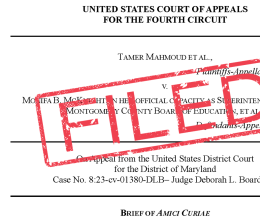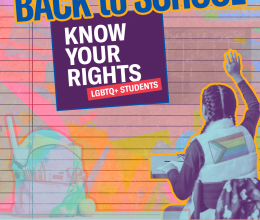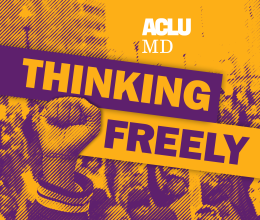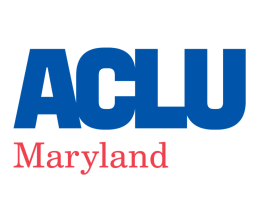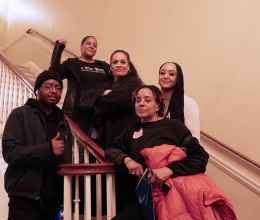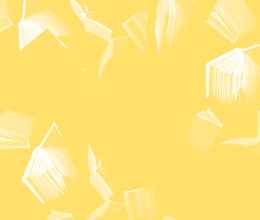
The ACLU of Maryland and the Maryland Coalition to Reform School Discipline are working with state lawmakers to limit suspensions and expulsions for pre-K through second grade students. The legislation, HB 425 /SB 651, Public School – Suspensions and Expulsions, provides supports rather than dismissals. Alarmingly, 2,363 Maryland students in this youngest age group were suspended out-of-school or expelled during the 2015-2016 school year.
No data supports the belief that suspensions and expulsions improve behavior for students who exhibit behavioral problems. In 2014, the U.S. Departments of Health and Human Services and Education wrote against the practice, because young children who are suspended or expelled are “10 times more likely to drop out of high school, experience academic failure and grade retention, hold negative school attitudes, and face incarceration.” Concerns about the harmful effects and unfair application of suspensions or expulsions for young children are growing, spurring many states, including California, Connecticut, New Jersey, and Oregon, to pass legislation to curb the problem.
Suspensions and expulsions are disproportionately used on Black students and students with disabilities. During the 2015-2016 school year, Black students accounted for 64.2 percent of all out-of-school suspensions, while comprising only 34.4 percent of the student body. Black students are also much less likely to receive speech and language special education services than white and Asian students, and more likely to be suspended or expelled for acting out.
Many young children face suspension or expulsion as the result of actions such as hitting, biting, grabbing, or throwing – behaviors that often signal speech delays and difficulty communicating with words. A student with hidden and unsupported communication, learning, or attention problems in these early grades may already have doubts that school is an appropriate or safe place for them. Exclusion from school is likely to increase those doubts and compound the problem.
The solution is to find supports to encourage a student’s positive adjustment to school and ability to learn. Classroom teachers need additional backing from an intervention team to address the needs of the youngest students effectively.
Another bill being considered by the Maryland legislature this session, SB 1/HB 286, Specialized Intervention Services – Reports, would require schools to report on what intervention services are available, including behavior and intensive academic supports. This bill focuses on learners who enter kindergarten without a special education designation, but who begin to flounder because of “hidden” learning, language, or behavior needs.
Fifty percent of students served by special education services have mild or late appearing disabilities that affect learning, attention, or emotional regulation. In Maryland, minority students with learning needs have significantly less access to the general education classroom, largely because of a lack of access to early academic and behavioral supports in their youngest years.
By taking pro-active steps to improve full and fair access to the classroom and intervention supports when needed, Maryland has an opportunity to help support student learning and growth at the most critical stages of early childhood. That is why supporting HB 425 /SB 651, Public School – Suspensions and Expulsions is so important.
